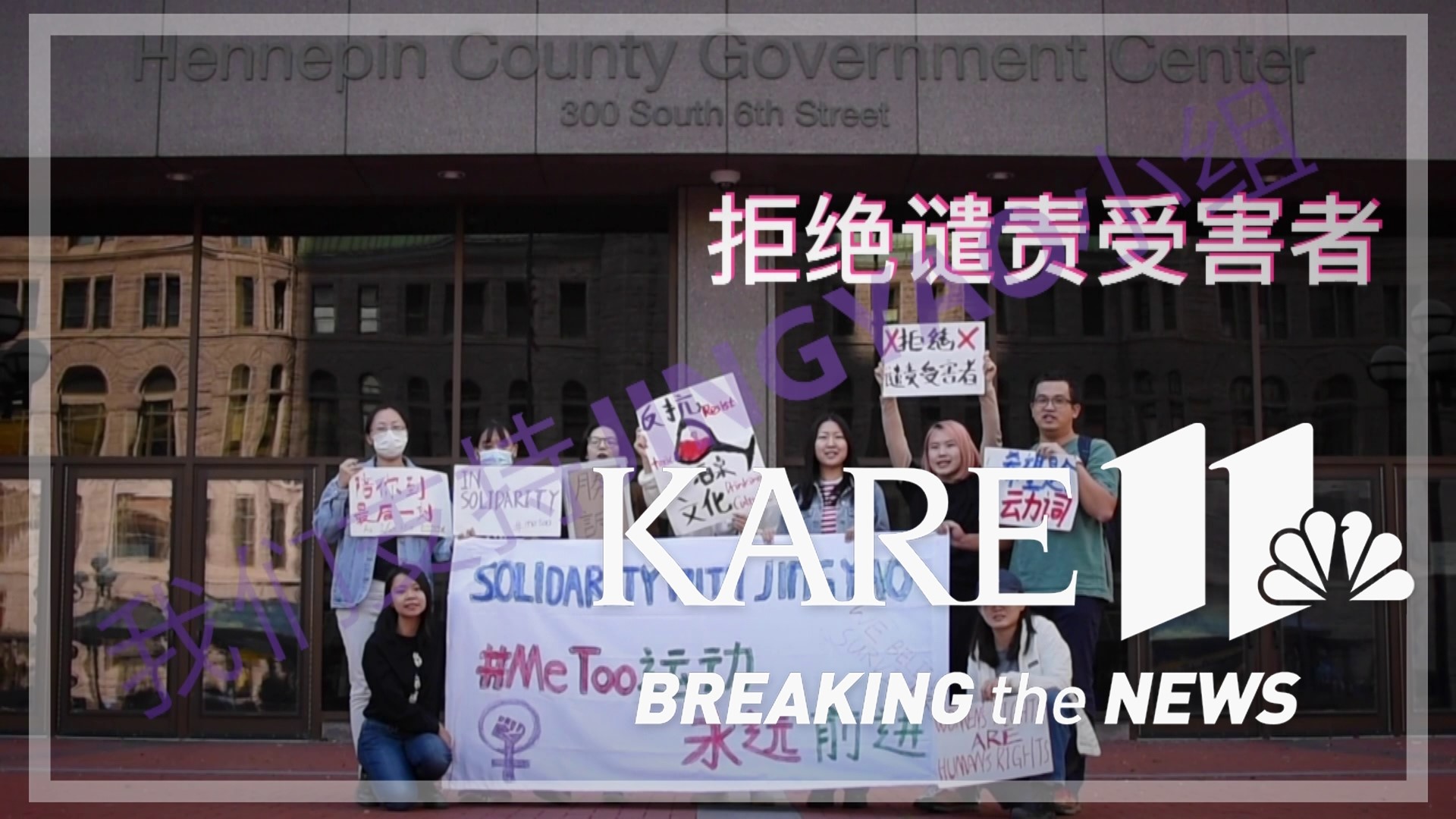MINNEAPOLIS — The jury was seated and opening arguments were set to begin Monday in the high profile civil case a former U of M student, accusing a Chinese billionaire of rape.
However, over the weekend, Richard Liu and his accuser, Jingyao Liu came to a settlement.
The settlement is being seen as a win for many activists, especially when it comes to the Chinese #MeToo movement, but the win comes with its own nuances.
Gigi Mei, a feminist and activist said she traveled to Minneapolis to show solidarity. She said a lot of folks came in from out of town for the trial, thinking that a physical presence would be of comfort to Jingyao had the trial gone on.
"This is a case I've been following-- it's one of the most highly profound, most influential MeToo case in China that happened in Minneapolis," Mei said.
Mei said Jingyao Liu's case is among several women's that have accused powerful Chinese men of sexual wrongdoing.
Tennis player Peng Shuai accused a former Chinese politician earlier this year of sexual assault. According to the Associated Press, that case has gone silent, with her accusations being scrubbed from the internet.
The case that kicked off the Chinese #MeToo movement back in 2018, was one against CCTV Host Zhu Jun, filed by activist Zhou Xiaoxuan. Zhou accused Zhu of sexually harassing her while she was an intern at CCTV. However, the court ultimately ruled Zhou did not meet the burden of proof.
The fact that Jingyao's case was filed in America though, made it completely different. Mei said documents had public access, which was not something the Chinese public could do easily.
"The amount of details in those documents provides us a very rare chance to see what actually happened," she said.
Despite the settlement however, both sides were able to "set aside their differences, and settle their legal dispute in order to avoid further pain and suffering caused by the lawsuit." Mei said the narrative in China still skews to favor Richard Liu.
For example, she said the headlines there use the word 和解 (Héjiě) which means reconciliation to describe the settlement, instead of using 协议 (Xiéyì) which Jingyao supporters prefer, as it means agreement.
"They use that version, which is intentionally biased towards Richard Liu, and then circulating using that," Mei said. "That continues to shape and paints Jingyao to be this gold digger."
In terms of whether Mei thinks the settlement is a win--she said yes. Mei said the statement didn't give Richard Liu the final chance to reiterate that the sex was consensual.
"If you read it closely, Jingyao was able to push all the way here saying she did not consent, she would never consented to what happened," Mei explained.
Plus, Mei said she thinks the settlement saves Jingyao from having to re-traumatize herself by going through the trial.
"The fact that she doesn't need to go through that process again, brutally," she said. "And able to reach a settlement for herself, with reparations, I think that's great and I think that's a win."
But even with that, Mei said the win doesn't necessarily translate to the lives both parties are returning to.
"Richard Liu can just be out, he's done--he's back to his usual business," Mei said. "But all the attacks and trolls--Jingyao is still going through that. I think that's why we need to create, and continue to tell and do a lot of public education to create that supportive culture."
Watch more local news:
Watch the latest local news from the Twin Cities in our YouTube playlist:

